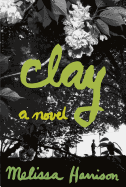
Clay is not the first novel to warn of the consequences of an increasing disconnect from nature, but Melissa Harrison brings an unusual perspective. Instead of seeing nature's grandeur in canyons and oceans or other magnificent vistas, she focuses on the plants growing up through sidewalks and the animals in city parks. This kind-hearted but troubling character study of urban dwellers struggling to encounter the natural world has its share of squalor, along with violence and tragic misunderstandings, but it also has a hopeful sense that even the most paved-over earth can provide spiritual sustenance for those who seek it.
Harrison's disparate and dislocated characters live along the border of an inner-city park in England. Jozef, a thoughtful Polish immigrant, takes a paternal interest in TC, a neglected child who finds solace exploring the park. TC makes friends with Daisy, a more privileged child whose mother would be aghast to learn she has been running free in the park when she visits her grandmother. And Daisy's grandmother, Sophia, is a widow who notices every thrush and vole as modern life rushes by, obliviously, on the crest of an electronic wave.
Though Jozef, TC, Daisy and Sophia interact with each other and nature with an openhearted warmth, the menace of the surrounding city--dog fights, hunger, technology-tethered humans and the unspoken knowledge that Jozef's concern for TC could easily be misconstrued--is never far off. Even as her characters' relationships approach a possibly tragic fruition, though, Harrison softens the poignancy with an intriguing vision of nature's omnipresence. --Cherie Ann Parker, freelance journalist and book critic

